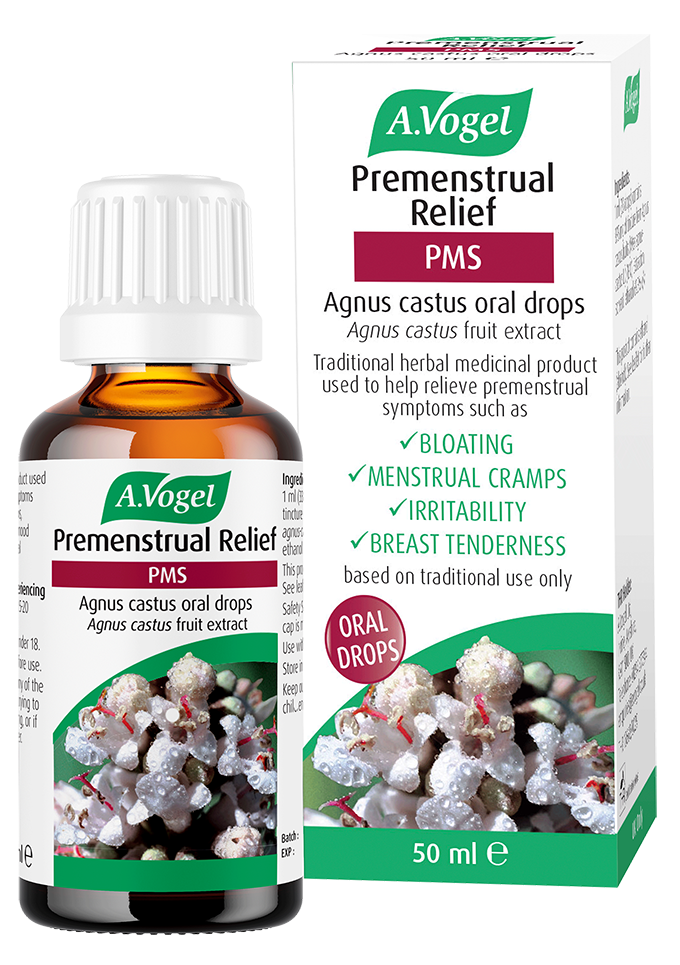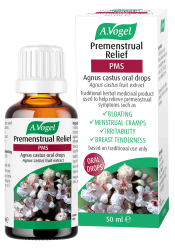An introduction to panic and PMS
Women prone to PMS may experience sensations of panic – an unpleasant but short-lived sensation characterised by fear, irrational thoughts and anxiety. This may arise because of a feeling that they are less able to cope with stresses at work or at home, feel more anxious and generally, less strong mentally.
Sometimes, the feeling of panic can be so intense it results in a panic attack, an episode of extreme anxiety giving rise to symptoms such as palpitations, difficulty in breathing and cramping of muscles.
Extra stress that comes about may then lead to feelings of being unable to cope and a sensation of dread, fear or panic. Often, PMS simply worsens the situation for someone prone to panic attacks. Occasionally, it causes a spontaneous episode of panic.
Why does PMS give rise to panic?
The female hormones oestrogen and progesterone have a major influence on your mood and the way you feel psychologically. Fluctuating levels of these hormones affect chemicals known as neurotransmitters in your brain.
The result is that you may feel a bit low in mood, more irritable or prone to anxiety. You may also find that you are less able to cope with stress and more prone to panic.
Fluctuating hormonal levels mean that you may feel perfectly well one moment and then anxious and panicky the next. Often we remember the episodes of panic more clearly. Women who already easily stressed, anxious or prone to panic may find that PMS significantly worsens their symptoms.
What can I do to help myself?
It is important that you learn how to identify the early symptoms of oncoming panic as in doing so, you will have a chance of preventing the attack developing.
- Take deep, slow calming breaths and develop techniques to calm your thoughts. This will keep the levels of oxygen and carbon dioxide in your body in the right balance and prevent physical symptoms such as hyperventilation and muscle cramps from developing
- Curb your intake of caffeine and alcohol. These act initially as stimulants and then depressants, playing havoc with your emotions
- Consider using a relaxation technique that will help you relax and cope with potentially stressful situations. Even getting out for some moderate exercise can help, over time, to ease your symptoms.
- Talking to people can often help put your worries into context and stop you from feeling excessively anxious. You may find that your family or friends, although helpful, may not be best choice and find more effective solutions from talking therapies such as Cognitive Behavioural Therapy (CBT).
Are there herbal remedies to help me?
A combination of the self-help tips mentioned and herbal remedies can be an effective way to manage panic attacks, whether or not associated with PMS.
- As the hormonal imbalances are at the root of why you don’t cope as well at this time of the month, using Agnus castus, a remedy to help with a range of general symptoms can be useful, especially if you are troubled with other aspects of PMS
- If you find that levels of stress are high at the time of your period, or that you are not able to cope well with the stresses around you, then Avena sativa (oats) or a valerian based herbal combination can help you cope better, and make you more relaxed.
Note however, that Agnus castus should not be taken if you are already using hormonal treatment, contraceptives or HRT.
What about conventional medicines?
If you are concerned about your condition, or think it is worsening, it is always worth making an appointment to see your doctor.
Unless your symptoms are severe, your doctor will be reluctant to prescribe treatment specifically for panic as often the side-effects outweigh the benefits of the drug treatment used. However, anti-anxiety or anti-depressant medicines can help.
Alternatively, your doctor may suggest hormonal treatment such as the contraceptive pill to help control your hormonal cycle, and this in turn will reduce the feeling of panic and other symptoms of PMS.
My PMS Journal
Keep track of your symptoms with our PMS Diary to identify patterns & help discover ways to minimise them.









